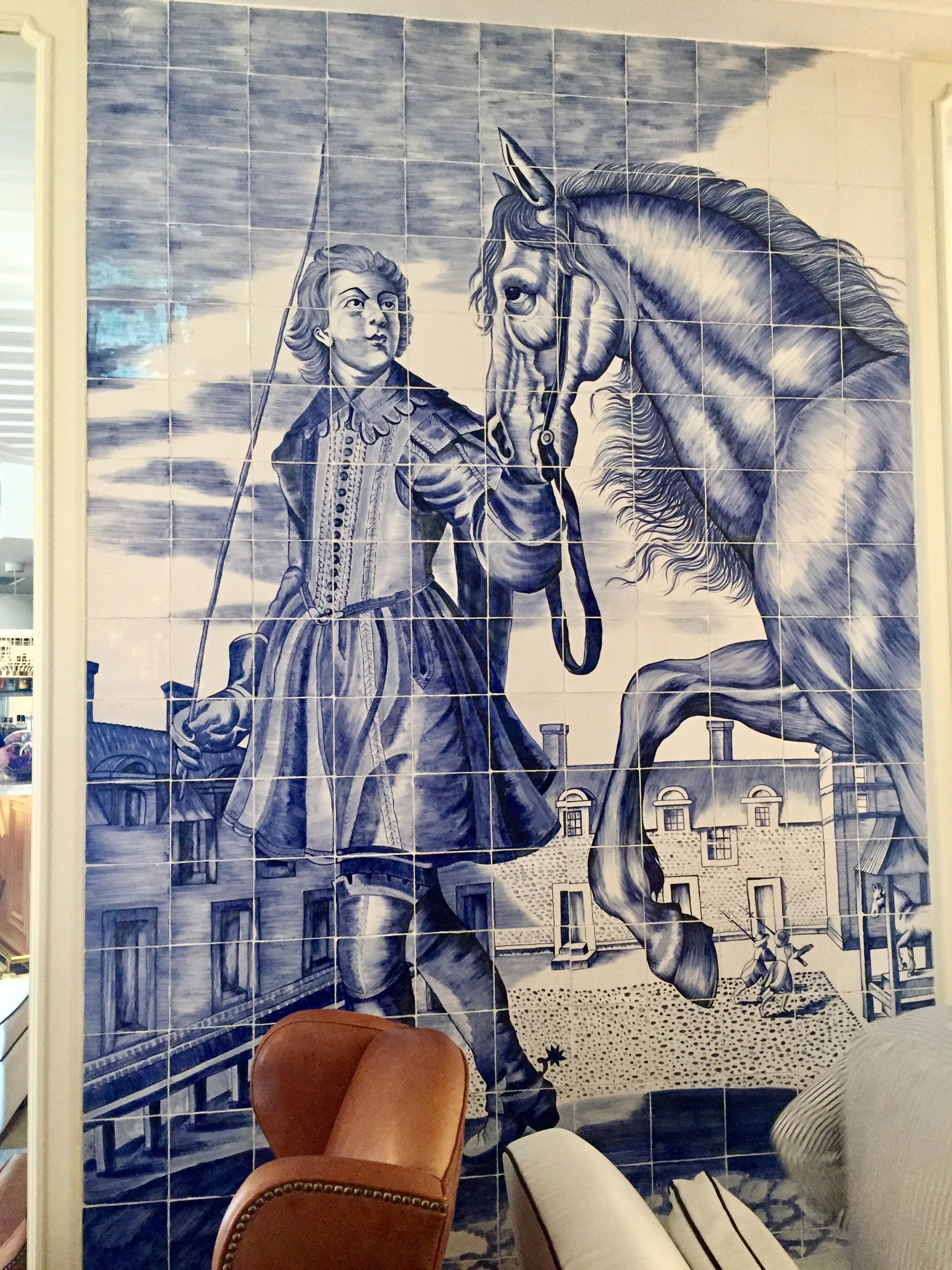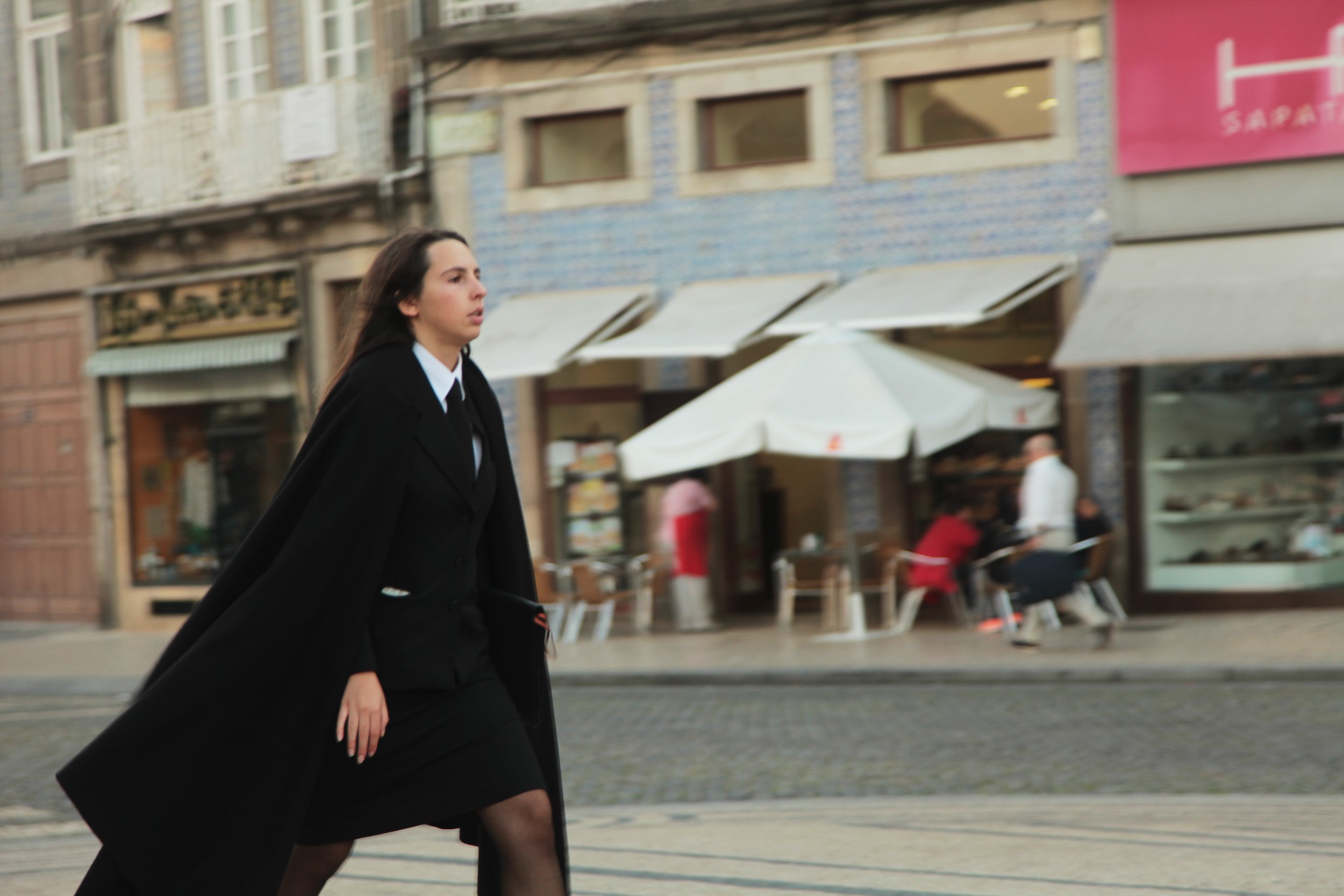Cultural Immersion: How to plan authentic, sustainable, enriching travel in Portugal
In our current era of mass tourism and rushed itineraries with only enough time for snapshot moments, a deeper approach to tourism—focused on cultural immersion—offers travelers authentic connections, rich history, untouched beauty, and meaningful experiences, while supporting local communities. At RuaMar, we want to share our personal story and how it relates to this topic because it has reshaped our way of living.
Portugal is a prime example of a country where deep traditions coexist with modern innovation, and that’s likely why Travel + Leisure ranks Portugal as one of the top 50 best places to travel. Two of our favorite examples of how Old is meeting New in Portugal are present in food and architecture:
If you've never tasted a pastel de nata, you're missing out on pure creamy-flakey magic. These and hundreds of other centuries-old conventual sweets, with recipes that were once carefully guarded by cloistered nuns, are now being reinvented by young chefs with a burst of locally-sourced ingredients and global culinary influences.
As you wander through winding streets, you might stumble upon a weathered or traditional façade that's concealing sleek, modern interiors—a tangible metaphor for Portugal's harmonious blend of old and new.
In Portugal, every cobblestone tells a story, every dish carries centuries of tradition, and every interaction offers a chance to make lasting connections. By choosing to slow down and immerse yourself in local communities, you can unlock the essence of Portuguese culture and contribute to the preservation of Portugal's vibrant heritage.
Isn't this the whole point of traveling, to connect with different cultures and experiences?
Our Personal Journey in Portuguese Cultural Immersion
Our gift to ourselves each wedding anniversary is travel; it’s one of the things we most love to spend our time doing together. Everywhere we travel, we try to take a slower, more local approach. For our 8th, we spent 3 weeks in Portugal.
Lisboa
Our flight landed in the beautiful city of Lisbon, where we were immediately struck by how much of its historic charm is alive and well and perfectly balanced with being a modern tech hub and capital city. We climbed all 7 hills, took breaks in neighborhood cafés, tried so many delicacies and discovered as many miradouros (scenic overlooks), side streets, praças (public squares) and gardens as we could. So many travelers stop their Portugal experience here.
But we didn't and it changed our lives.
Silver Coast
We decided to venture to the stunning Silver Coast (which starts an hour north of Lisbon and ends just south of Porto). Here, the city vibes slow down and the lush, pristine coast, dotted with quaint towns and fishing villages, takes center stage. It’s a low-key but very vibrant foodie, artisan and surf culture haven. More on this, here. This area is now our home and while underrated in the guidebooks, it is so very rich in things to do and experience in the Portuguese way.
Porto
The second city, Porto, was our next stop. It has so much architectural beauty and culture that it’s no surprise that J. K. Rowling drew inspiration from this city. Porto whispers stories of centuries past in its narrow, winding streets and has an unreal foodie scene. We love Porto in a really big way. There’s something special in the air. It’s stately, natural, unfussy, architecturally gorgeous and full of history all at the same time. We’re back in this city roaming around the shops and neighborhoods every chance we get.
Algarve
The Algarve captivated us with its breathtaking landscapes and world-class beaches. From the golden cliffs of Praia da Marinha—regularly ranked among Europe's most beautiful beaches—to the crystal-clear waters and stunning rock formations. Without a doubt, the Algarve offers an unparalleled beachy coastal experience and the seafood is phenomenal. Our blog on the Algarve and Alentejo includes tips on some of the best things to do, see and taste in southern Portugal.
Alentejo
In the Alentejo, we discovered a profound connection to Portugal's agricultural heritage. This golden, fertile region—often called the 'breadbasket of Portugal'—revealed the intricate world of cork production and winemaking. The vast, undulating plains dotted with cork oak and holm oak forests tell a story of tradition, sustainability, and cultural richness. The region's wine culture is fascinating. Alentejo produces half of Portugal's wine and has undergone a remarkable renaissance since the 1980s, transforming from a cork-producing area to a world-renowned wine region. The local wineries, with their commitment to environmental preservation and sustainable practices, offered us a deep dive into the region's viticultural traditions and inspire many of our foodie events.
Our personal journey through Portugal was more than a vacation—it was an immersion into a way of life that resonated deeply. The landscapes, the flavors, the warmth of the people, and the rich cultural tapestry ultimately drew us back, leading us to make Portugal our home.
The Rising Tide of Cultural Tourism in Portugal
Portugal's appeal extends far beyond its sun-soaked beaches. Portugal is also known for great landscapes of all types, good food, good temperatures, impeccable artistry, surfable waves, and great hospitality. The country is experiencing a cultural renaissance, fueled by a growing global desire for authentic travel experiences. Visitors are increasingly seeking opportunities to connect on a deeper level with local communities.
With Portugal's impressive tech, arts, music scene, and rich history—including 17 UNESCO World Heritage Sites (with 18 more on the tentative list)—there's much more to discover beyond the typical tourist routes.
Why Cultural Immersion Matters
Cultural immersion goes beyond surface-level discovery and interactions, offering a meaningful way to understand and appreciate local heritage. It's about supporting local communities, buying local, traveling with a smaller or smarter footprint, participating in traditional practices, and gaining insights and access to flavors that typical tourist activities can't provide.
Authentic Experiences: From learning to cook cataplana in the Algarve to participating in the grape harvest in the Douro Valley, immersive experiences offer genuine interactions that deepen your understanding of Portuguese life.
Sustainable Tourism: By engaging with communities on their terms, cultural immersion supports sustainable practices. In Portugal, where overtourism has been a growing concern in cities like Lisbon and Porto, this approach helps distribute tourism benefits more evenly across regions. We love the major cities; there are so many reasons that they are iconic and popular. However, it was also really nice to see a band like Coldplay opt to perform 4 nights of sold-out concerts in Coimbra, a city 5X smaller than Lisbon. Coimbra is renowned for its preserved medieval old town and the University of Coimbra, one of the oldest universities in the world. It also is host to ancient cathedrals, stunning botanical gardens, impressive museums, traditional Fado music, and labyrinthian streets. Coldplay’s focus on sustainability generated a direct economic return of 36 million euros for the city.
Personal Growth: Stepping out of your comfort zone to embrace Portuguese culture broadens your worldview and can often get you access to more interesting views and delicious meals.
Tips for Cultural Immersion in Portugal
Eat Local: Savor traditional Portuguese dishes. Explore local markets and wine-tasting tours to discover regional delicacies and fine wines.
Stay in unexpected places: Experience the charm of modern jewel-boxed boutique hotels housed in historic buildings or rural retreats surrounded by stunning landscapes. In the countryside, Portugal offers stays on gorgeous Quintas (farm estates) or vineyards with amazing farm-to-table chef’s tables and options to participate in agricultural or nature activities.
Participate in Festivals: Engage in cultural celebrations like the São João Festival in Porto or the Festa dos Tabuleiros in Tomar to witness traditions, costumes, dances, music and artisanry come alive.
Support Local Artisans: Purchase handmade goods directly from craftspeople. Visit traditional workshops to see the creation of ceramics, textiles, cork products or hand-painted azulejos. Did you know that Portugal ranks highly in several artisanal industries?
- Textiles: Portugal has one of the strongest textile industries in Europe, known for its craftsmanship and expertise in high-quality apparel and home textiles.
- Shoes: Portuguese shoes are considered the second best in the world, after Italian shoes.
- Ceramics: Portugal is renowned worldwide for its beautiful azulejo tiles and high-quality ceramics crafted by manufacturers like Porcel, Vista Alegre, and Costa Nova
- Knitwear: Portugal is an undisputed leader in the European textile industry, particularly in knitwear manufacturing.
By supporting Portuguese artisans, you not only find unique, high-quality products but also help to preserve cultural heritage and traditional craftsmanship.
Volunteer Opportunities: Contribute to local communities by volunteering with organizations that focus on environmental protection, cultural preservation, or animal or social welfare.
Learn a Traditional Craft: Deepen your connection to Portuguese culture by learning a traditional craft like winemaking, filigree jewelry or pottery.
Respect Local Customs: Familiarize yourself with basic Portuguese etiquette to ensure customary and respectful greetings such as “Bom dia,” “Boa Noite,” "Senhor," or "Senhora."
The Ripple Effect: Benefits Beyond Travel
Cultural immersion has impacts that extend far beyond individual travelers. In Portugal, where tourism accounts for 16.5% of the GDP and supports over 1 million jobs, responsible tourism practices are crucial for sustainable economic growth.
“Sustainability is no longer a choice but a necessity paving the way for a future where tourism can thrive without compromising the health of the planet or the well-being of local communities.”
At RuaMar, we believe travel can influence the lives of visitors and communities. Our mission is to facilitate authentic experiences that connect travelers with Portuguese culture while promoting sustainable tourism practices.













































